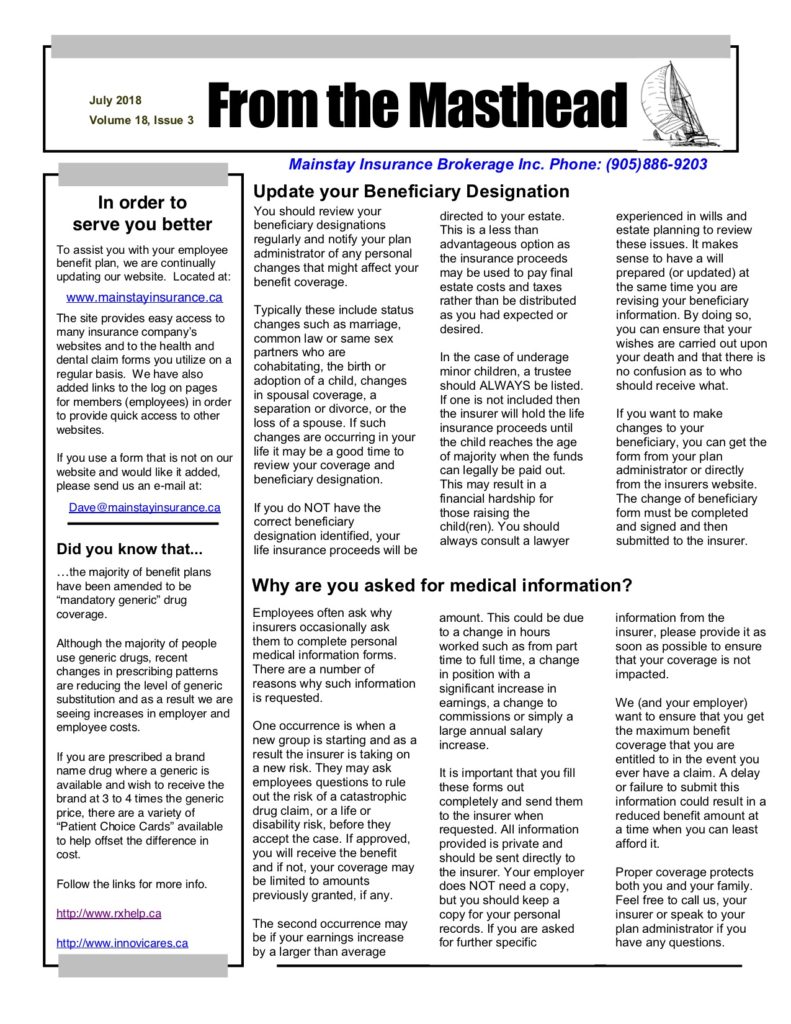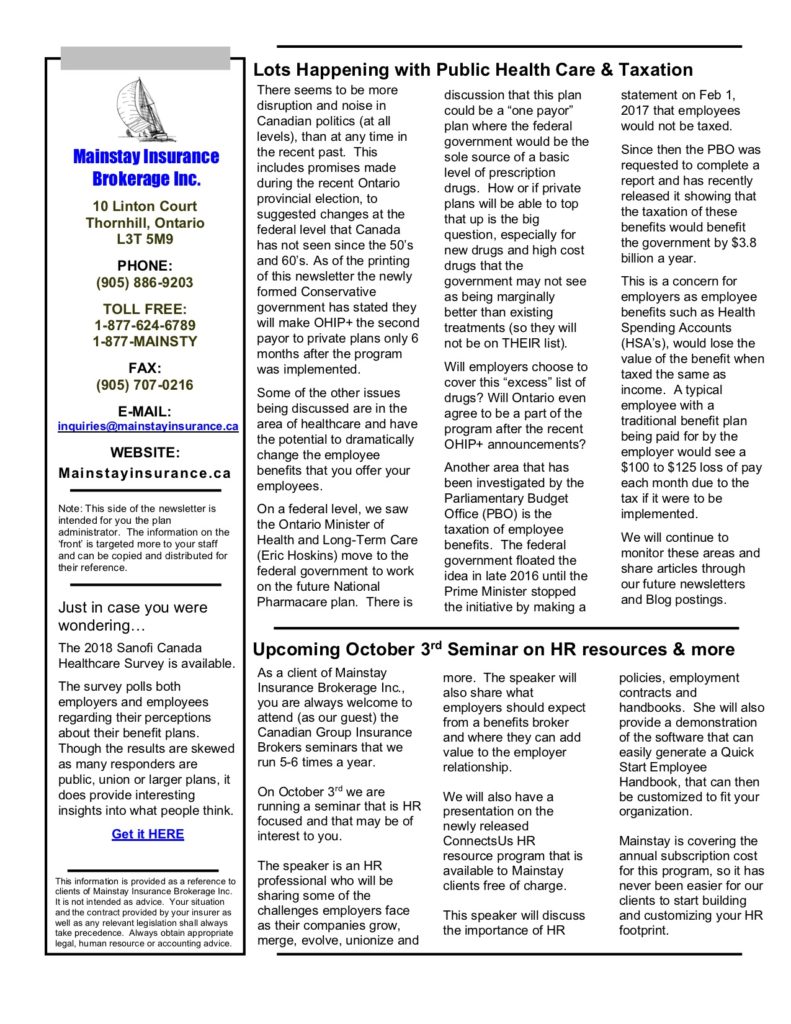EI sick benefits are the one benefit that most of our clients rely on to support employees in the period before Long Term Disability (LTD) begins. This is an area that the government has not materially changed in almost 50 years and we see no indication that they are looking at making changes. Few employers having formal salary continuance programs or insured Short Term Disability (STD) coverage, so this is an area where any change could have a real effect on employers. We’ll continue to monitor the area for changes, as the usage (and government costs increase)…
More and more Canadians are applying for federal help as they take time away from work to battle serious illness — and almost four out of every 10 applicants are maxing out their benefits.


